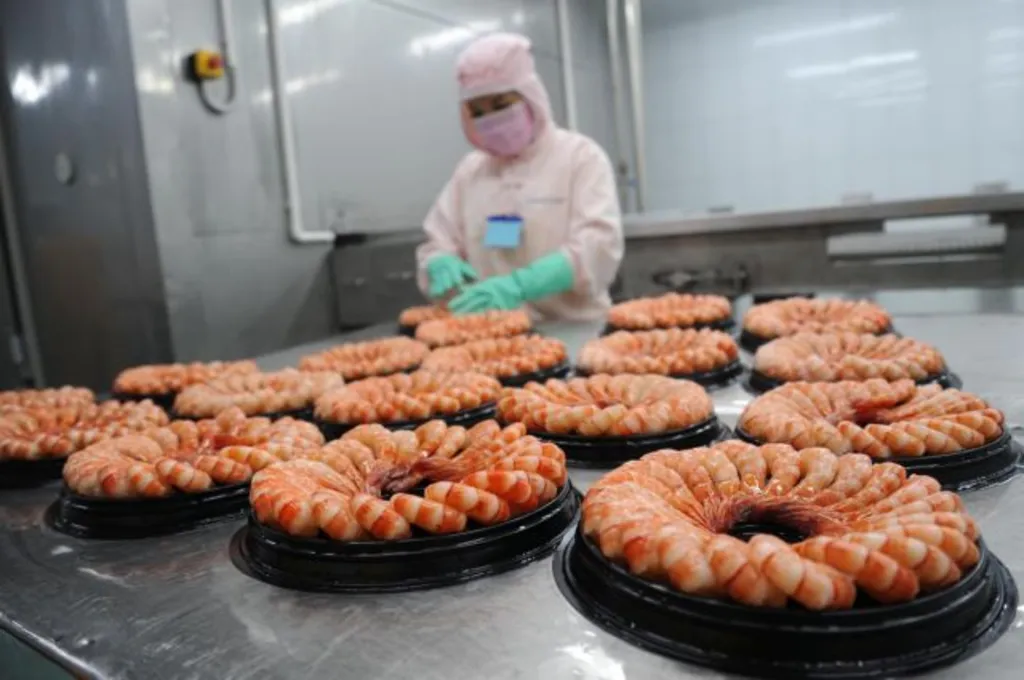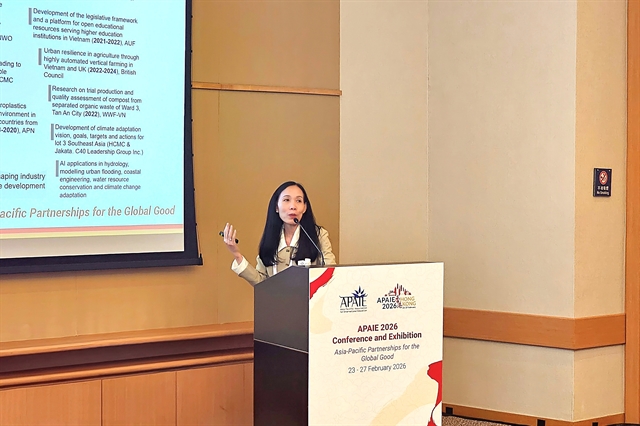 Business Beat
Business Beat

 |
| A shrimp processing factory in Cà Mau Province. — VNA/VNS Photo Thế Anh |
Compiled by Thu Trà
HÀ NỘI — Vietnamese businesses are advised to proactively respond to trade defence lawsuits to avoid their negative influence on export activities as trade defence investigations have been expanding in terms of markets and industries.
Chu Thắng Trung, deputy director general of the Vietnam Trade Remedies Authority under the Ministry of Industry and Trade, said that in the current context, the world has continued the trend of globalisation and trade liberalisation, with the reduction of import tariff barriers - one of the characteristics of that trend.
However, several countries have maintained mechanisms to protect domestic industries from unfair competition and excessive imports. And those mechanisms use trade defence tools according to the regulations of the World Trade Organisation (WTO) and Free Trade Agreement (FTA) commitments.
Trung said Việt Nam's exported goods face the risk of being subjected to trade remedies and measures to prevent evasion of trade remedies.
He added that the number of trade defence probes against Việt Nam's exported goods has increased sharply, accounting for 65 per cent of the total number of cases over the past 20 years.
To date, Vietnamese exported goods have been involved in 239 trade remedies investigations. Typically, products such as shrimp, tra fish, honey and aluminium have always coped with investigations, investigation warnings, lawsuits, and imposition of anti-subsidy taxes.
An early trade warning needed
Trung said Vietnamese exporters must get used to trade remedies and defence mechanisms in global trade as the country's export turnover grows rapidly.
"There is no getting around them. The question is how to better support Vietnamese businesses facing trade remedy investigations," he said.
Trung said an early warning is proof that the system is working as intended and that the authority has been in the process of narrowing down Vietnamese products that often faced investigations in the past and those that have experienced rapid growth recently. These are the products to look out for, he said.
"We'd rather be safe than sorry. Of course, we do not want our warnings to come true, but businesses should rather be aware of their risk than to be caught unprepared," Trung said.
Nguyễn Thu Trang, director of the WTO and Integration Centre at the Việt Nam Chamber of Commerce and Industry (VCCI), said an early warning system could address some of these issues by giving companies more time to prepare their cases if needed.
"It's better to present a good case than trying to minimise damage. Having more time will allow companies to gather more accounting data to support their case," she said.
Chairman of the Vietnam Aluminium Association Nguyễn Minh Kế agreed. He said aluminium is a multi-purpose material and has many competitive advantages in the market, so it has faced increasing trade defence cases in export markets.
In this context, Kế said his association has regularly coordinated with the Vietnam Trade Remedies Authority to provide businesses with training courses on trade defence, while guiding them to prepare documents so as not to be passive or surprised by an investigation from the export market.
At the same time, the association has updated early warnings from the Ministry of Industry and Trade, and closely followed trade defence investigations around the world as well as investigation trends with Vietnamese exported goods, to provide notifications and support businesses in responding to lawsuits.
Well-prepared for trade defence probes
Besides support from State management agencies, businesses should be well-prepared with data, documents, personnel resources and financial provisions so that they could be ready to participate in future trade defence investigations, experts said.
In recent times, businesses have paid increasing attention to protecting their interests and minimising risks that might occur in the face of trade remedies investigations, especially investigations against tax evasion of trade remedies.
Once a risk is identified, businesses need to have a solution in advance to address it. The first is to consider whether the use of raw materials is subject to the investigation against trade defence tax evasion or not, to adjust production. At the same time, they should maintain governance so that when allegations arise, they would have evidence to prove them and provide relevant information to investigation authorities.
Closer cooperation among businesses and associations and trade defence consulting agencies is also needed so firms could be more proactive in production activities, they suggested.
Lawyer Đinh Ánh Tuyết from Việt Nam International Law Firm said that businesses needed to regularly update information about trade defence investigations through Vietnamese trade agencies in their exporting countries, the Vietnam Trade Remedies Authority and the Ministry of Industry and Trade.
Although each market would have its own way of investigating, the common point they all targeted in the lawsuits was the raw material, production and sales areas of the enterprise. That was something that businesses should pay attention to and prepare in advance to have appropriate and effective responses, Tuyết told congthuong.vn. — VNS




